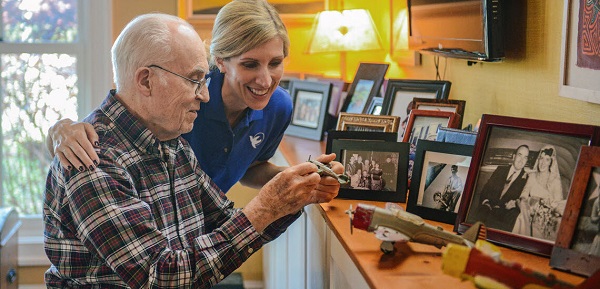What to Do When You Suspect an Alzheimer’s Misdiagnosis
While a diagnosis of Alzheimer’s is a life-changing event for those diagnosed and their families, it is not always accurate.
Guest article by Visiting Angels
Researchers have found that about 20% of Alzheimer’s cases may be misdiagnosed. Other studies have found that people with Alzheimer’s have symptoms that are mistaken for other conditions. As a result, they don’t receive treatment for Alzheimer’s when they need it.
What should families and caregivers do when they suspect an Alzheimer’s misdiagnosis in their mom, dad, or grandparent?
The Alzheimer’s care professionals at Visiting Angels [URL Updated 11/18/2024] gathered the following information for families to consider in evaluating a potential misdiagnosis.
Common Reasons for Alzheimer’s Misdiagnoses
Alzheimer’s misdiagnoses commonly occur due to one of three reasons:
- The person has a medical condition that triggers Alzheimer’s-like symptoms.
More than 100 types of conditions mimic Alzheimer’s. Some of these are treatable, including depression, insomnia, vitamin deficiency, hormone imbalance, hydrocephalus (fluid buildup around the brain), thyroid problems, brain tumors, and alcoholism. - An individual has a related form of dementia, such as Lewy bodies, vascular, or Parkinson’s.
- Side effects caused by prescription medications.
Some of the most common classes of drugs and medications can lead to an Alzheimer’s misdiagnosis. These include antihistamines, antidepressants, anti-anxiety medications, sleeping pills, corticosteroids, cardiovascular drugs, and anticonvulsants.
In rare cases, Alzheimer’s can be mistaken for episodes of forgetfulness and cognitive decline. While worried elders may interpret these symptoms as signs of Alzheimer’s, your doctor should be able to identify these as false signs, making this kind of misdiagnosis unlikely.
What to Do When You Suspect a Misdiagnosis
If you believe your loved one has been misdiagnosed, begin observing and recording his or her behaviors and symptoms.
Doctors often use information provided by patients and their families to help them in making their diagnosis.
If you’re still unsure, request a PET scan to detect any amyloid plaque buildup, an indicator of Alzheimer’s. While a PET scan cannot confirm a diagnosis Alzheimer’s, an absence of amyloid plaques helps rule out Alzheimer’s. (A PET scan is not covered by Medicare or most insurance policies. It costs about $4,000.)
 Visiting Angels locations across the country have been helping elderly and disabled individuals, providing care and support in the comfort of home, since 1998. Visiting Angels provides dementia and Alzheimer’s care for individuals living with memory disorders. With more than 500 Visiting Angels locations, you can learn how your local agency coordinates dementia care and request an initial consultation by contacting us online. [URL Updated 11/18/2024]
Visiting Angels locations across the country have been helping elderly and disabled individuals, providing care and support in the comfort of home, since 1998. Visiting Angels provides dementia and Alzheimer’s care for individuals living with memory disorders. With more than 500 Visiting Angels locations, you can learn how your local agency coordinates dementia care and request an initial consultation by contacting us online. [URL Updated 11/18/2024]










Hi, Brenda
Thank you for posting this blog here having great information for us. also, this is a great reminder to take care of those misdiagnoses. Would be waiting for such more.
Keep blogging.
http://papayacare.com/
We’ll keep blogging, thank you. 🙂
Help us help caregiving families for people with dementia by sharing these informative posts via your social media links.
Brenda
This is a good reminder. Before accepting the first diagnosis, be sure these three areas are considered. A good doctor should recommend these before the absolute Alzheimer’s diagnosis.